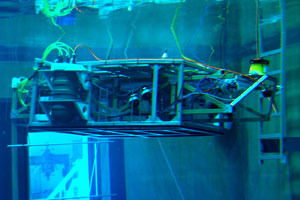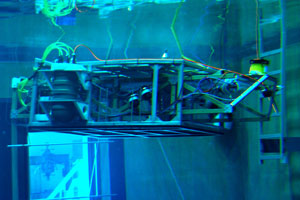 The new FOCE experimental chamber being developed by MBARI scientists.
The new FOCE experimental chamber being developed by MBARI scientists.
The scientists at the Monterey Bay Aquarium Research Institute (MBARI) are already well-known for uncovering some of the most extreme marine animals in the deep sea, like the incredible vampire squid. But recently, they're using their unique blend of biology and engineering to study one of the least-discussed impacts of climate change: ocean acidification.
When we hear about climate change, we tend of think of the atmosphere - and for good reason. But as MBARI scientists describe, the oceans are a key part of the process. The ocean acts like a giant sponge, absorbing carbon dioxide emissions from the air. And as we add more and more CO2 to air by burning fossil fuels, the ocean is absorbing it. On one level, it's done us a big favor. Scientists say that we would be experiencing much more extreme climate change were it not for the ocean's ability to remove the heat-trapping gas.
However, the carbon dioxide that the ocean absorbs is making the water more acidic. This isn't the first time that the oceans have become more acidic. But as is the case with many impacts of climate change, it's the rate at which acidification is happening that worries scientists the most.
As you can probably guess, the ocean is an incredibly complex system. So ocean acidification poses an interesting question to scientists: what will the impacts be on marine species and ecosystems? What they know already is that there will be winners and losers in more acidic waters. Some creatures may do fine, while others won't be able to adapt in time. Either way, food webs may feel the effects - including webs involving species that humans depend on , like salmon.
